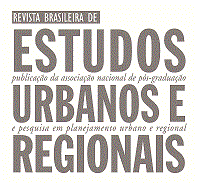Abstract
The consolidation of the Mid-Northern region of the state of Mato Grosso as a key area in the soy production was a consequence of the policy of “modernization of agriculture” promoted by the military regime in the 1970s. The transformation of the forest landscape in fields for crop production was part of a colonialization program that enlisted most of its agents in colonial areas in Southern Brazil, inhabited by European immigrants since the beginning of the 19th century. The analysis is based on an ethnographic study of immigrants’ families of ascendant settlers who consider themselves to be part of the process of founding the “new society”. This article aims to problematize categories related to pioneer honor and its relationship with forms of classification by origin like “gaúcho”, “cuiabano” and “maranhense”. The ethnographic content demonstrates how local forms of hierarchy mobilize principles of coloniality of power that historically structure the project of national society.
Keywords:
Colonization; Agribusiness; Soy; Honor; Ethnicity
